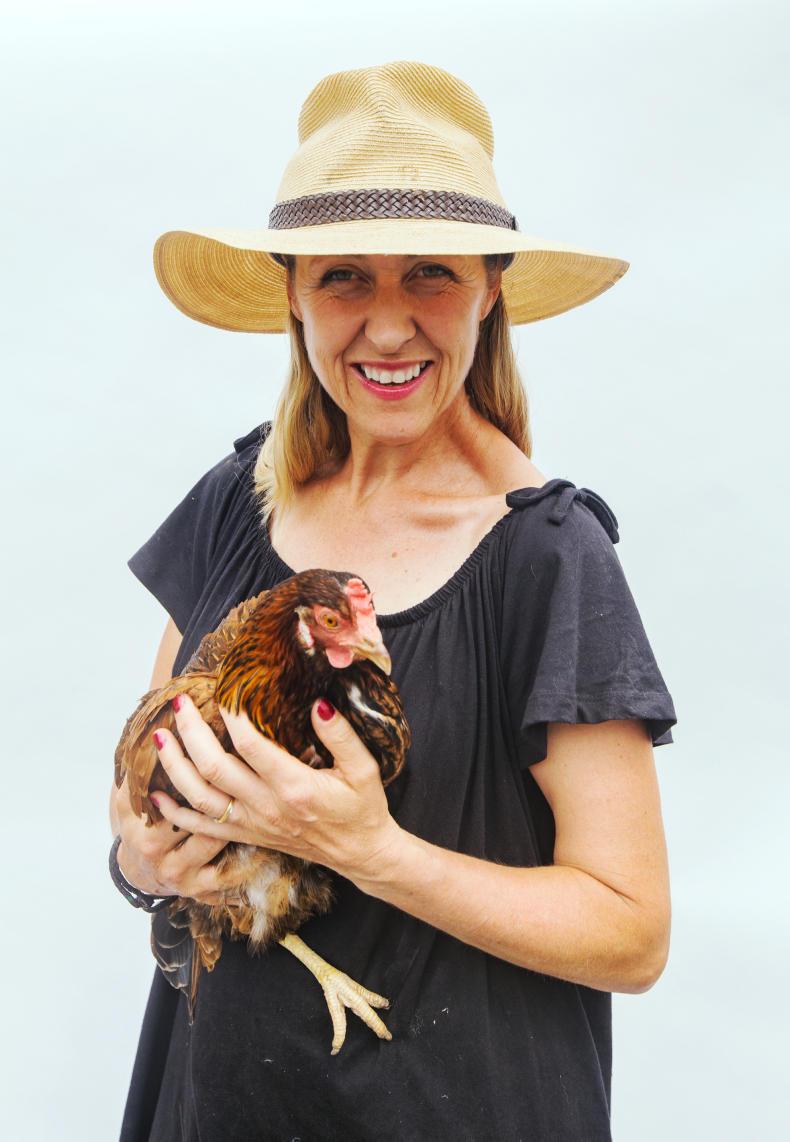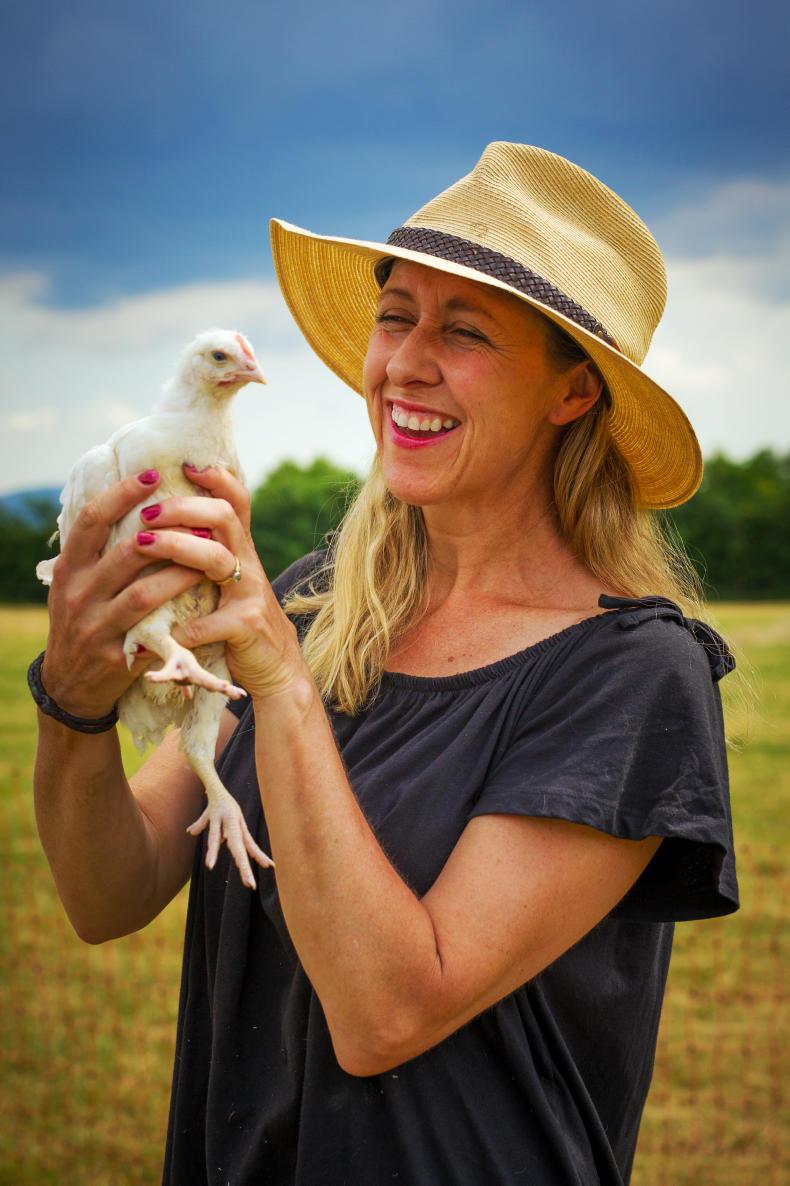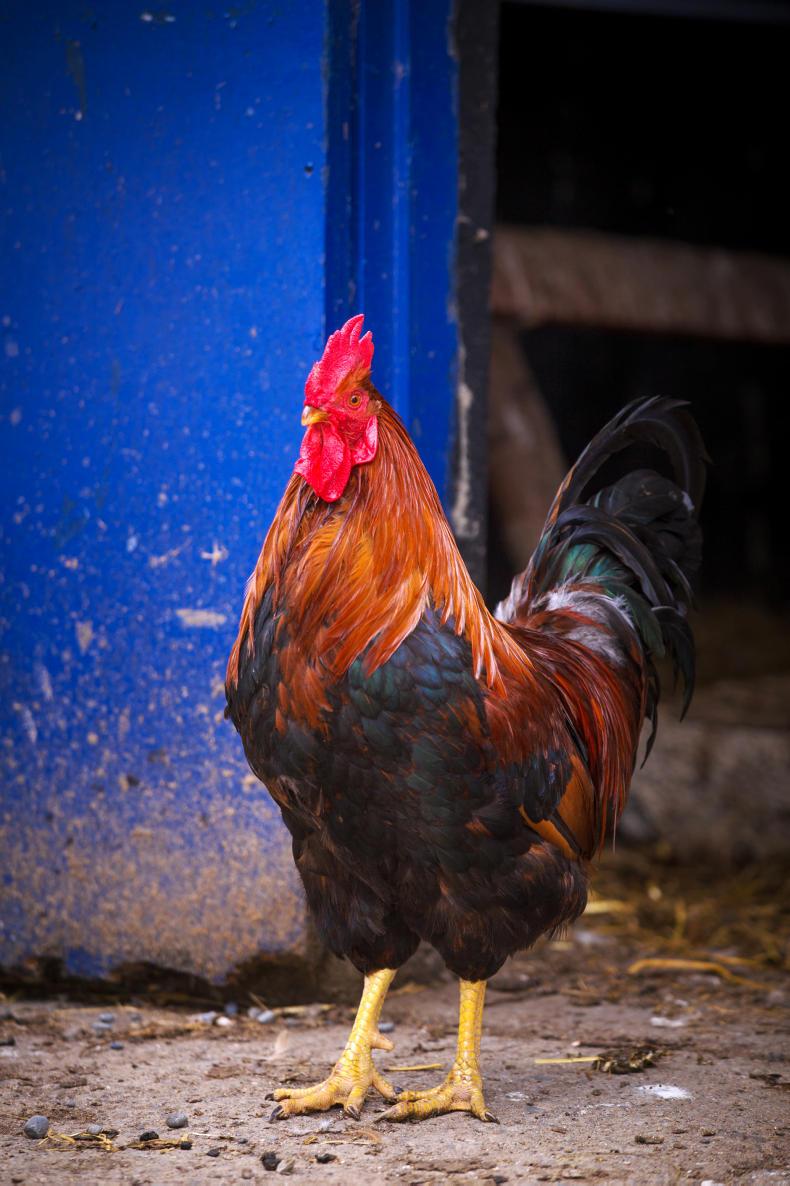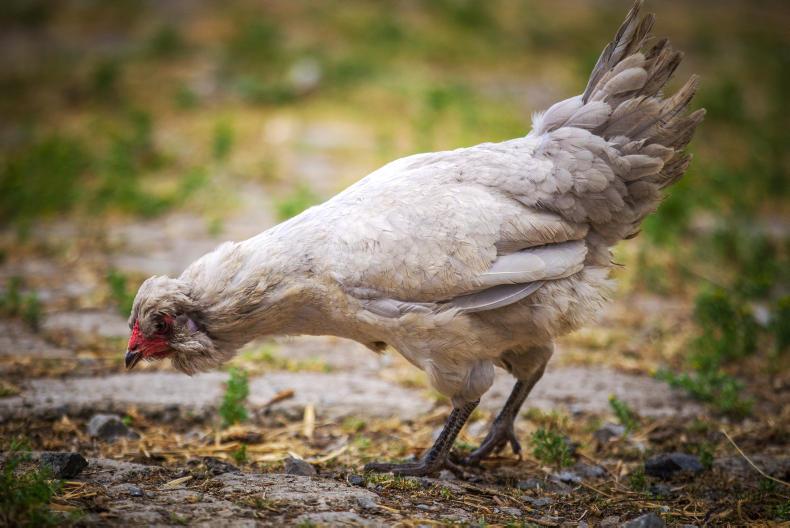Tenderly cupping a downy chick in her hand, Kylie Magner reflects on something her son said to her recently. “Our 10-year-old said one day: ‘Isn’t it amazing mum that we started with 10 chickens; and look how far we’ve come?’” she smiles.
Tenderly cupping a downy chick in her hand, Kylie Magner reflects on something her son said to her recently.
“Our 10-year-old said one day: ‘Isn’t it amazing mum that we started with 10 chickens; and look how far we’ve come?’” she smiles.
And in Kylie’s case, it’s not just setting up her pasture-raised egg business, Magners Farm, in 2017, it has also meant a real return to her rural roots in a journey that has taken her from Australia to Fethard in Co Tipperary, not just once, but twice.
Originally from New South Wales, Kylie spent her childhood on a cattle, sheep and tillage farm, but sadly the death of her father when she was just 12 left the family with little option but to sell up. The seed for a career in agriculture, however, had already been planted.
“I guess I probably pined for the farm,” reflects Kylie, who went on to study for a business degree in agricultural commerce, before moving to Japan to work with the Olympic show-jumping and eventing team.
“I wasn’t really a home bird,” she smiles. “I guess we didn’t have a farm to go back to, so I had to get out and find my own way.”
After returning to Australia, Kylie stayed in the horse industry, working with the renowned Sydney-based bloodstock agency, William Inglis & Son, followed by a racing magazine. When that company was bought out, however, she decided to travel to Ireland on a working holiday in 1998 in the hope of gaining some experience at Coolmore Stud in Tipperary.

“I didn’t have any aspirations to work for Coolmore as such, I just really wanted to come and see how they did things,” she explains.
“So I brought riding out gear, mucking out gear, a couple of office bits and pieces and it was originally just a six-month period where I said: ‘I’ll come over here and learn as much as I can and then go back to Australia.’”
But not only did Kylie land a job at Coolmore – working her way up to media director – she also met her future husband, Billy Magner, who was veterinary manager at the farm.
“We got married 18 months later and had our first baby 12 months after that,” says Kylie, whose eldest daughter, Matilda, turns 17 this month, and was followed by Tadhg (14), Imogen (12) and Fintan (10).
In 2004, the young family bought a 20-acre former dairy farm in Fethard, which they decided to lease out until they would be in the position to keep their own brood mares in the future. In 2009, however, they were presented with an opportunity that was too good to turn down when Billy was offered a job with Coolmore in the Hunter Valley in Australia.
“I’d always had an itch to want to give my own kids some sort of understanding of Australian life, so I really was keen for us to move back,” says Kylie, who set up her own advertising agency after moving home, working with clients including the Scone Race Club and the Hunter Valley and New South Wales Thoroughbred Breeders.
Six years after relocating, however, the death of Billy’s father prompted another change of direction – and heart – after the couple returned for the funeral.
“We both felt it was time to come back to Ireland and on the plane on the way home, we both discussed it and decided that was what we were going to do,” says Kylie, who admits that many people thought they were “absolutely mad” to return at the end of 2016.
While Billy continued to work with Coolmore, Kylie made the decision to stay at home to support the children as they settled back into Irish life. But she still wanted to do something for herself, except this time, using their 20 acres.
Exactly what, she wasn’t sure.

“I had to find something that was going to sustain us financially on the farm, that was probably workable for everybody so that it didn’t place stress on Billy or the children or me and that I was flexible,” she says of her criteria.
Horses were too intensive, while cattle and sheep were not deemed viable given the size of the holding. As it turned out, however, the answer was under her nose, as Kylie had already started to keep hens as a hobby.
“I think we bought 10 hens at €15 each from a fellow who was breeding heritage breed hens,” says Kylie of her introduction to poultry keeping.
“And there were only so many eggs that we could eat, so we started giving them to a few friends and family, who started giving us a bit of cash for the eggs. So we had a jar, and we started putting the money into the jar and by the time we collected another €150, we decided to reinvest and buy another 10 hens and the process kept continuing.”
Realising that egg production would provide “instant cashflow” for a small outlay, Kylie contacted officials at the Department of Agriculture, who advised her on how to convert an existing farm shed into a suitable facility for poultry.
“I was really starting from scratch,” continues Kylie, who got a loan of €15,000 from Microfinance Ireland towards the infrastructural costs, along with using personal saving and “selling a horse or two” to get going.
The department also recommended sourcing Hy-Line hens as a suitable breed alongside her mixed heritage hens, so Kylie got in touch with James Ryan Poultry in Cork to buy 150 new birds.
“I was very apologetic at the size and scale,” says Kylie of her initial order last October.
“But he said: ‘Do you know what? I’ve seen people like you who started out small and who now have 40,000 birds in flocks, so it’s important to get it right.’”
While approved by the department for a free-range model, Kylie describes her method as “pasture range”, which is a concept she first came across in Australia that allows the hens to graze, scratch and forage on fresh grass.
 “We were managing them more like any other livestock I guess, because we didn’t have any poultry background,” she says.
“We were managing them more like any other livestock I guess, because we didn’t have any poultry background,” she says.
“So we kept them in a secure place at night with food, water, bedding, gave them plenty of room to move and socialise without hurting each other and then have ample area to be outside and making sure that it was always fresh, clean pasture that you would provide for any other animal.”
The next step was to extend their customer base beyond friends and family, but again, Kylie started small, taking her eggs to the local Fethard Country Market on a Friday.
“We’d be lucky to bring in three or four dozen a week,” she recalls of the early days, but as the flock – and production – increased, the Magners began selling at Cahir Farmers’ Market, followed by Thurles Farmers’ Market.
“And it’s worked out really well for us,” she continues. “We can sell up to 40 dozen eggs on a Saturday in Cahir and we usually sell out by about 11am and that’s everything that we produce.
“We can’t keep up with the demand at the moment, which is why we are getting more hens, but I think probably the thing I’ve learned most is if you really believe in your product and it is a good product, then your sales will come.
“I mean, at the end of the day, they’re eggs and a lot of other people produce eggs, but I think the fact that we are able to tell our story and we’ve been involving people in our story the whole way through, people have seen us grow.”
Since June, the Magners have added another 300 chickens to their flock and are nearly at the end of the application process for their packing licence to sell to restaurants, cafes and butcher shops, with a request already for 350 eggs/week from a new cafe in Dublin. However, they have also diversified with two other products: pasture-raised chickens grown to 16 weeks, as well as a chicken bone broth, which is produced using the facilities at The School of Food in Thomastown, Co Kilkenny, and is currently undergoing shelf-life testing to facilitate further distribution.

To this end, Kylie is “incredibly grateful” for the support of Microfinance Ireland, who provided invaluable advice as well as financial assistance, along with the ACORNS programme for female rural entrepreneurs, for helping her to see the bigger picture for the business.
“When you’re running an agricultural business – I’m sure loads of other people find the same thing – you’re so bogged down in the day-to-day – ‘I’ve got to be here, I’ve got to fix that fence… – the actual running of the business takes second fiddle and it’s so important that it doesn’t,” she says.
“Between Microfinance and ACORNS, having to write a proper business plan and have a financial forecast that was realistic – not just throwing in a few figures – I mean there’s a lot of work in that, but once it’s done, it’s something then that you can build on every day almost.”
The fledging business was also recently awarded a €5,000 bursary as part of the Síolta awards at the Clonmel Show.
And while it is essential that the business provides a living for the family, Kylie believes the life lessons it has provided are just as important.
“It’s kind of a weird thing to say, but it has changed our life,” she says, explaining how invaluable it is for her children to see “a business model develop” in front of their eyes on the farm.
“Some weeks, putting petrol in the car was an issue,” she continues, “so for them to see that and to see how hard work and a few ideas and I guess good herdsmanship have changed our way of living and that now we’re starting to plan bigger things and better things and we’ve a cashflow … that’s probably more than I ever bargained for.”

Magners Farm eggs are available at Fethard Country Market every Friday morning and at Cahir and Thurles Farmers Markets every Saturday morning. For further information, visit https://www.magnersfarm.com/ or follow on Facebook, Instagram and Twitter.
Read more:
From city chic to country chick
Meet Margaret Farrelly





SHARING OPTIONS: